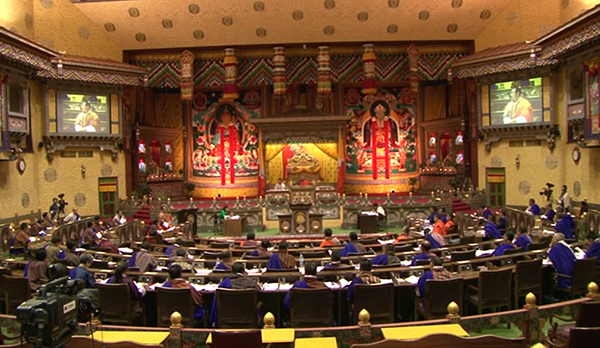 In a daylong deliberation at the parliament yesterday, members discussed whether there is a need to institute a new public debt management act that would provide legal basis to the national debt policy which the finance ministry is yet to submit to the government.
In a daylong deliberation at the parliament yesterday, members discussed whether there is a need to institute a new public debt management act that would provide legal basis to the national debt policy which the finance ministry is yet to submit to the government.
Members remained divided on whether there was a need for such an act, since there were already similar legal instruments like the Public Finance Act, the RMA Act and the Constitution that covers issues related to debt management. The need for a debt management act was a part of the recommendation made by the Public accounts committee in response to royal audit authority’s several findings and review on the economy’s indebtedness. While some members said, the debt policy need not be deliberated in the parliament; others insisted it should be presented in the parliament.
Opposition Leader, Pema Gyamtsho said an act provides a legal basis to a policy. Panbang MP, Dorji Wangdi said the policy should be presented during the next session of the parliament and accordingly the need for an act should be explored. He said, only then will it be known whether existing laws cover issues on debt or whether there was a need for a new separate act.
The house decided that the government after developing the policy would present it to the parliament. Based on the policy the government will also recommend, should there be a need for a policy. After that it will be deliberated whether there was a need for a separate debt act. The deliberation is likely to take place in the next session of the parliament. On the economy’s indebtedness, discussions focused mostly on hydropower and non-hydropower loans. Bartsham-Shongphu MP Wangdi Norbu said since most of the borrowings were hydropower related, the debt situation was not alarming.
Others however said even hydropower loans were worrisome as projects get delayed and cost escalated. BardoTrong MP Leky Dorji said due to cost escalation, per unit cost of electricity would also increase. For instance cost of building Punatshangchhu I hydropower project increased to NU 97 B from Nu 35B. Accordingly, its per unit cost would also increase since power tariff is determined on cost plus model. Members of the parliament also discussed on rupee reserve management and cash flow management, non-hydro related debt and the undeveloped domestic debt.
At the end of the session, Speaker Jigme Zangpo reminded the house that the constitution be followed and that future generations should not burdened on debt.












